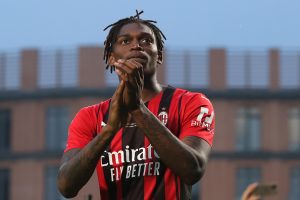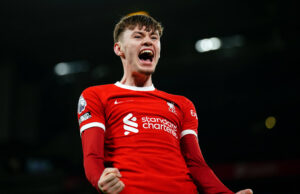This is the story of Red Bull’s involvement in football. This article is part two of a two-part series. Click here to read part one.
Red Bull sporting projects are creative and engaging. And the story of Red Bull Salzburg is a case in point. Since their takeover in 2005, they have won 11 league titles with six in a row. The club made it through to the Europa League semi-finals during the 2017/18 season.
The Red Bull Group – Thinking Outside the Box
The Manager Merry-Go-Round
And it is not just players who have benefited from the Red Bull network. Former Salzburg manager Jesse Marsch also transferred through the clubs’ footballing family. Commencing in his native America with New York Red Bulls, he won the 2015 MLS Supporters Shield before settilg sail over the pond to Europe to become assistant manager of RB Leipzig.
Next, he took charge of the Austrians at Salzburg. He guided them in retaining their league title last season and top the table this season. His reward was to be given a promotion of himself. He will stay in the Red Bull family where he will be appointed as the Red Bull Leipzig manager. He will replace Julian Nagelsmann, who joined Bayern Munich.
Other notable managers elevating the Red Bull footballing story include Ralf Rangnick, the ‘Godfather’ of the corporation. The German oversaw the rise of RB Leipzig from the regional leagues to runners-up in the Bundesliga. He was also director of football at both Leipzig and Salzburg. He later became head of sport and development, presiding over all Red Bull sides. The German was a hugely influential figure in the Red Bull sporting project.
Rangnick was highly thought of and well respected among his peers due to his vision, leadership and his eye for talent. He successfully developed the youth system and created a global scouting network which reaped untold rewards.
Ralph a True Saint
One of the managers who admired Rangnick is the current Southampton manager Ralph Hassenhüttl, who spent two years at Leipzig, continuing the good work of Rangnick. The Austrian guided Leipzig to a creditable second place in their debut season. After, followed another positive season and a sixth-place finish. He then left his post with Julian Nagelsmann taking the reins. He continued fulfilling his promising managerial expectations – with his side further spreading their wings in the Bundesliga.
Returning to America, the ownership purchase of New York Reb Bulls gave their product further visibility and credence breaking into a notoriously difficult American market. Yet, they made waves through their clear identity which Red Bull continue to foster and culture. Key to their success was Bradley Wright-Phillps. He is their record goalscorer with 126 goals and hit an MLS best 27 goals in 2014.
Brazil the Next Football Dynasty in the Red Bull Story
The Red Bull group have another guise in Red Bull Bragantino. Based in Brazil, the club finished last season tenth in Brazil’s Série A first division. Red Bull’s sporting rebrands further underpin the company’s thirst in many ways to clinch global sporting dominance.
For all the positivity of winning titles, nurturing talent and forging global ties, there are negatives to this story. The company has constantly received backlash from opposing romantic football lovers who reject the notion of Red Bull’s manufactured team concept rather than their original, organic clubs.
The German Way
In Germany, there is a regulation named the ‘50+1’ rule. Established in 1998, it ensures supporters always possess the majority of votes to prevent outside organisations from wielding too much power. Failing that contravenes Bundesliga rules with clubs then not allowed to participate in the league.
However, there are exceptions, with Bayer Leverkusen owned by the pharmaceutical company Bayer and VFL Wolfsburg through its Volkswagen automotive workers. They are exempt due to long-established employee links, gaining exemptions from the ruling as their stake in the clubs are in regulation for more than 20 years.
But Red Bull have cleverly circumvented those rules by electing only 17 members on the board – all of which belong to the drinks company. Any new members can apply, but face an expensive yearly membership fee of €1000. The club also reserves the right to reject any membership without reason.
These factors are precisely why opposing supporters are firmly against the distinct lack of heart and respect Red Bull represents. Fan groups stay clear of trips to the Red Bull Arena in protest. Sure, jealousy plays a part but there is credence to their argument. Would you want your traditional football club to be rebranded all in the name of success?
The Future of the Red Bull Story
But ultimately in sport, winning is everything so the majority of supporters of the respective Red Bull clubs feel happy belonging to a unique footballing family. Victory is a drug and success through tangible trophy success is what the supporter craves.
Red Bull continues to reinvent the wheel by adapting to modern-day functions. Their cutting-edge methods enhance the brand through engaging strategic alliances. They demonstrate innovation to stay ahead of the curve in their competitive industry.
For Red Bull, their master plan to dominate football has reaped the ultimate reward.
Main Photo






